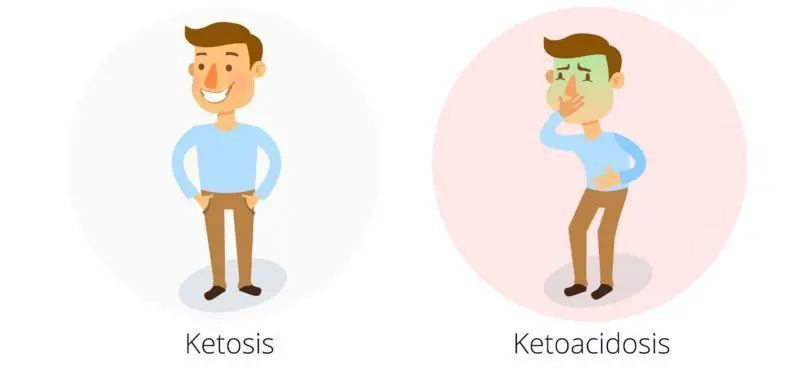When the body can’t use the glucose for fuel, it starts to burn fat, which in turn produces ketones. The ketones are the back-up fuel supply that helps the body function properly. Almost all of our cells use the ketones energy.
Also, the brain can burn around 75% of all the fuel they provide.
The body regulates the production of ketones through a balance between the stress hormone and insulin. When the body is thrown off balance, it stops the ketone production. Moreover, ketones function as weak acids.
So, if their production doesn’t stop, they can affect the bloodstream and cause the pH levels to drop or become too acidic. Since it takes a little insulin to stop the production of ketones, this can cause sudden spikes in the blood sugar levels.
As a result, it can seriously affect the overall health.
What Are Ketones?
Ketones are the remaining acid in the body when it starts to burn its own fat. So, when the body lacks insulin, it can’t get the adequate amount of glucose in the blood and starts to burn the fat. As a result, the liver transforms the fatty acids into ketones.
The body uses these ketones as a source of new energy. It is normal to have low levels of ketones in the body, but high levels can cause a dangerous condition called ketoacidosis.
Symptoms
Whether you have type 1 or 2 diabetes, it is important to manage your condition properly. Here are the symptoms of blocked ketone production you should look out for.
- Rapid breathing
- confusion
- extreme thirst
- fatigue
- feeling sluggish or extremely weak
- fruity breath smell
- irritability
- agitation
- nausea
- rapid heartbeat
- often urination
- vomiting
How to Test for Ketones
You can test for ketones at home. To get the most accurate testing use a blood glucose meter. This meter can test for both the blood glucose levels and ketones. Also, you can test the urine for ketone levels.
Here is when you should test for ketones if you are taking insulin.
- When the blood glucose levels are above 13 mmol/L at all times.
- If you are vomiting or have diarrhea which is some of the symptoms of ketoacidosis.
- If in response to a certain illness your blood glucose levels start to rise.
- When the blood glucose levels are above 17 mmol/L.
Ketones and Weight Loss
When the body burns fat, the ketones are produced. So, the people who lose an excessive amount of weight might have higher ketone levels than normal. As a result, many people recommend the ketogenic diet, especially for people with type 2 diabetes.
However, if you have type 1 diabetes, it is not a good idea to follow this diet.
The ketogenic diet might affect your insulin level and cause a higher risk of developing ketoacidosis. Therefore, it is very important to consult with a doctor or a nutritionist for any changes you might want to implement in your daily diet.
I Might Have Diabetic Ketoacidosis – What Now?
If you think you have all the symptoms mentioned above, consult with your doctor. It could be possible that you have diabetic ketoacidosis. However, it is much better to detect the early signs before this severe condition takes hold of your body.


